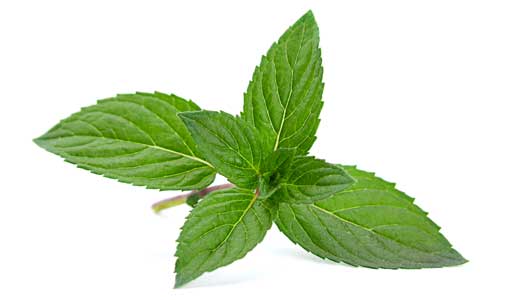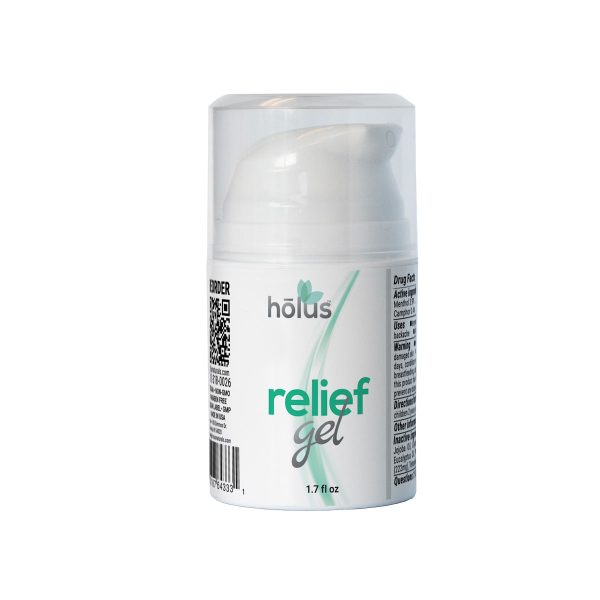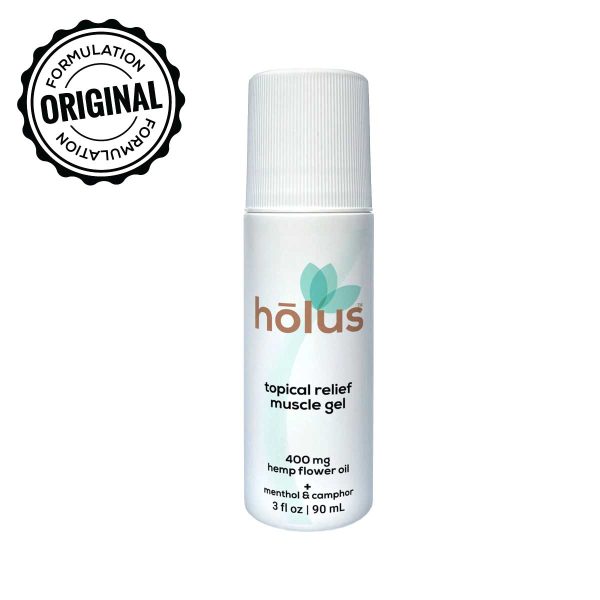Uncovering the Health Advantages of Menthol
The benefits of menthol have long been a subject of interest for researchers and consumers alike. Menthol, a naturally occurring compound extracted from mint plants, has been widely used in various items such as tablets, peppermint tea, and even cigarettes. This post will take a closer look at menthol, uncovering its potential health advantages.
Join us as we navigate through studies showing the efficacy of menthol in alleviating pain and reducing inflammation – providing valuable insights into the many uses and benefits of menthol.
1. What is Menthol?
Menthol is a natural compound derived from the mint family of plants, such as peppermint and spearmint. Menthol, with its cooling effects and potential health advantages, has been used for centuries in traditional treatments as well as cosmetics. The compound can be extracted through steam distillation or cold extraction methods, resulting in a crystalline substance with a strong, refreshing aroma.
Menthol has been utilized since ancient times, with its first recorded use in Egypt, Greece, and Rome for medicinal purposes. Today, menthol can be found in various consumer products ranging from topical creams and ointments to oral care items such as toothpaste and mouthwash.

A Brief History of Menthol Usage:
- Egypt: Ancient Egyptians used peppermint oil containing menthol to relieve digestive issues.
- Greece: Greek physicians prescribed mint-infused remedies for treating respiratory ailments.
- Rome: Romans cultivated mint plants extensively for their culinary uses and medicinal applications like pain relief.
Natural vs. Synthetic Menthol
Menthol can also be synthesized chemically using ingredients like citronella or turpentine; however, natural sources are more desirable because of their purity. The demand for naturally sourced menthol continues to grow because consumers prefer organic ingredients over synthetic ones for personal care products.
Menthol is a natural compound derived from mint plants with cooling and numbing properties, making it an ideal ingredient for many products. Now lets look into the advantages of menthol by exploring its mode of operation.
2. How Does Menthol Work?

Menthol works its magic by interacting with our body’s cold-sensitive receptors, specifically the TRPM8 receptor, which is responsible for sensing cold temperatures and providing that cooling sensation we associate with menthol. When applied topically or inhaled, menthol stimulates these receptors, creating a feeling of coolness without actually changing the skin’s temperature.
This unique mechanism has several benefits:
- Pain relief: By activating the cold-sensitive receptors, menthol can help to temporarily numb pain signals in the affected area. Menthol’s ability to activate cold-sensitive receptors makes it an ideal component in topical pain relief products, like creams and patches for muscle soreness or joint discomfort.
- Inflammation reduction: Menthol has been shown to have anti-inflammatory properties due to its ability to inhibit certain enzymes involved in inflammation processes.
- Congestion relief: The cooling effect of menthol on nasal passages can help alleviate congestion associated with common colds or allergies. In fact, many over-the-counter decongestant products contain menthol as one of their active ingredients.
Beyond these primary effects, researchers are also exploring other potential applications for this versatile compound – from improving athletic performance through enhanced blood flow during exercise to potentially reducing the severity of migraines. As more studies are conducted, we may continue to discover new ways that menthol can benefit our health and well-being.
Menthol’s effects on the body are complex, but understanding how it works can help you understand why so many people use menthol-based products. Exploring the advantages that menthol provides for skin wellness and upkeep can be useful in comprehending why so many individuals utilize menthol-infused items.
3. Benefits of Menthol
Menthol can be highly beneficial for skin health because of its numerous properties and effects. Its cooling sensation, anti-inflammatory action, and ability to soothe irritation make it a popular ingredient in various skincare products.
Reduces Inflammation: Research has shown that menthol possesses anti-inflammatory properties which help reduce redness, swelling, and discomfort associated with various skin conditions such as acne or eczema. By applying products containing menthol directly onto the affected area, you may experience relief from inflammation and improved overall skin appearance.
Soothes Irritation: The cooling effect of menthol is well-known for providing relief from itching or burning sensations caused by irritants like insect bites or sunburns. The activation of cold-sensitive receptors in the skin helps alleviate these uncomfortable symptoms while also promoting a sense of calm and relaxation.
Relieves Pain: Menthol’s analgesic (pain-relieving) properties are often utilized in topical creams designed to treat muscle pain or joint discomfort. It works by creating a numbing effect on the nerves responsible for transmitting pain signals to your brain. This makes it an effective remedy against minor pains related to exercise-induced injuries or chronic conditions like arthritis.
Menthol can also act as a penetration enhancer, allowing other active compounds to be absorbed more deeply into the skin for improved relief. This allows for better absorption of nutrients and active compounds, resulting in enhanced overall skincare benefits.
Due to its advantageous properties, Menthol has become a ubiquitous component in skincare items such as creams, lotions, balms, and even lip care products. However, it’s essential to choose products with appropriate concentrations of menthol to avoid potential irritation or adverse reactions.
4. Is Menthol Bad for You?
Menthol is generally considered safe when used topically, as it has been a popular ingredient in various skincare products and traditional medicine for centuries. However, like any substance, menthol may cause skin irritation or an allergic reaction in some individuals. It’s essential to be aware of the potential risks associated with menthol use and take necessary precautions.
Potential Skin Irritation
While many people can enjoy the cooling sensation provided by menthol without any issues, others might experience mild skin irritation after using products containing this compound. Signs of irritation may include redness, itching, or burning sensations on the applied area. If you notice these symptoms after using a product with menthol, discontinue its use immediately and consult your healthcare provider.
Allergic Reactions
In rare cases, symptoms of an allergic reaction could range from hives and swelling to difficulty breathing or even anaphylaxis – a severe life-threatening condition that requires immediate medical attention.
Safety Precautions When Using Menthol Products
- Avoid applying on broken skin: Do not apply menthol-based products directly onto open wounds or broken skin, as it can exacerbate pain and potentially lead to infection.
- Patch test before full application: To minimize the risk of adverse reactions such as irritation or allergies, perform a patch test by applying a small amount of the product on your inner forearm before fully incorporating it into your routine.
- Follow usage instructions: Always follow the recommended usage instructions on menthol-containing products to avoid potential side effects.
- Consult a healthcare professional: If you have concerns about using menthol-based products or experience any adverse reactions, consult your doctor or dermatologist for guidance and advice.
While menthol is generally safe when used topically, be aware of its potential risks and take necessary precautions. By following safety guidelines and consulting with healthcare professionals as needed, most people can enjoy the benefits of menthol without experiencing negative side effects.
Although menthol use can be beneficial, it is wise to take caution and consider the potential risks before using it.
5. Side Effects of Menthol
While most people can enjoy the benefits of menthol on the skin without any issues, others might experience mild skin irritation or even an allergic reaction.
Possible Skin Reactions
- Redness: Some people may develop redness after applying products containing menthol to their skin.
- Burning sensation: A burning sensation could occur if you have sensitive skin or are using a product with a high concentration of menthol.
- Allergic reactions: In rare cases, individuals may experience an allergic reaction to menthol. Symptoms can include itching, hives, and swelling at the application site. If you suspect an allergy to menthol, discontinue use immediately and consult your healthcare provider.
To minimize these risks when trying new skincare products containing menthol, perform a patch test by applying a small amount on your inner forearm before using it on larger areas of your body.
Ingestion Risks and Precautions
Menthol should never be ingested as it can lead to more serious side effects such as nausea, vomiting, dizziness, and difficulty breathing. The FDA has warned against consuming pure powdered caffeine products mixed with liquid due to the risk associated with inaccurate measuring, leading consumers unknowingly ingest toxic amounts. The same caution should be applied to menthol. In the event you accidentally consume a large amount of menthol, medical help should be sought out immediately.
Precautions for Children and Pregnant Women
Particular caution should be exercised when applying products containing menthol to children or expectant mothers. Menthol-containing cough drops and vapor rubs can cause respiratory distress in young children. When expecting or nursing, it’s wise to consult a healthcare professional before using any topical menthol products, as the safety of their use during pregnancy has not been extensively researched.
In summary, while most people can safely enjoy the benefits of menthol on the skin without experiencing side effects, be aware of potential risks and take necessary precautions when trying a new menthol product.
Menthol has been used for centuries as a natural remedy and in skincare products. Menthol is renowned for its anti-inflammatory, analgesic, and skin health properties. Despite some possible risks, the advantages of using menthol are much greater than any potential drawbacks when used appropriately. Therefore it’s important to research what you’re using before applying it topically or ingesting it orally so you can reap all the possible benefits of this powerful natural ingredient.









